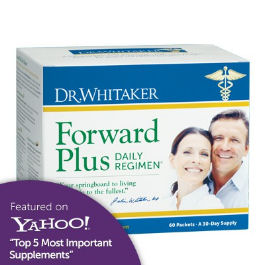| You might think that by eating a healthy, balanced diet, you are getting all of the nutrients that you need each day. However, to get a sense of what you're really putting into your body every day take a look at the ingredient label next time you open a box or a can to make your next meal.
Look at all of those ingredients that you can't pronounce, and wouldn't be able to spell if they weren’t written in front of you. One of the main culprits in our obesity epidemic is high fructose corn syrup, which snuck by the Food and Drug Administration in the early 1970's and has found its way into almost every food group. Look at pictures of people in the 1960's, and then today, and you can see how much fatter we've become. Yes, portion size has a lot to do with this too, but the high fructose corn syrup is an insidious source of empty calories in too many of our dietary choices.
Enriched or bleached flour is another dietary culprit. Yes, the flour stays in the food (along with the calories), but the fiber and other benefits of raw flour are now gone. Forget all of those preservatives and artificial colors too – they just add sodium to our nutritional content without providing any real nutritional benefit.
But what about fresh food? There are dietary experts who recommend shopping “around the U” at the grocery store – sticking to the sides and back of the store, where the fresh produce, meat, and dairy are found – most of the processed foods are on the aisles. There's much sensible in this suggestion, but you're still not getting all of the nutrients that you need. Even the oranges you pick up in the produce area have lost much of the nutrient value that they had on the tree. And if you go to a farmer's market, or out to the country and buy from produce stands, the soil where they grow contains fewer nutrients than it included when our grandparents were our age, because of over cultivation, which drains the soil.
So what can we do? Even if our food is becoming less healthy, our body's needs aren't changing. For proper development and growth, our bodies need specific vitamins, minerals and other nutrients if we're to develop correctly, be productive and remain healthy. Vitamins help us fight off diseases with a healthy immune system, and they also help keep us in a good mood. They help our blood to clot when we have a cut, and they help our bodies drive away viruses when attacked by them. Some vitamins help our body's produce energy more efficiently.
If you're not getting the vitamins that you need each day, ask your doctor to recommend a particular multivitamin. Sure, you can run out and grab a bottle of Centrum, or another name brand, but multivitamins have become so specialized that you're likely to pick up something that's not designed for your particular needs. Some vitamins will help boost metabolism, but they're not always available in sufficient quantity in the foods that we eat. If you're missing just one of these vitamins, you can eat the right foods and exercise daily and still get only some of the nutritional benefit, because your body has run out of those nutrients and isn't burning calories as efficiently as it could. After all, it is vitamins that help the enzymes break down food into proteins, carbohydrates and fats. A multivitamin recommended by your doctor could take your health regimen to the next level – and give you the results you want.
- Nutrients to support brain tissue and improve mental stamina
- Vitamins and minerals to sustain good health in all body functions
- Natural nutrients that promote strong cardiovascular health
- Special nutrients to help you more effectively deal with high stress
- Powerful antioxidants to fight free-radical damage
- Read
More
|

|
|
